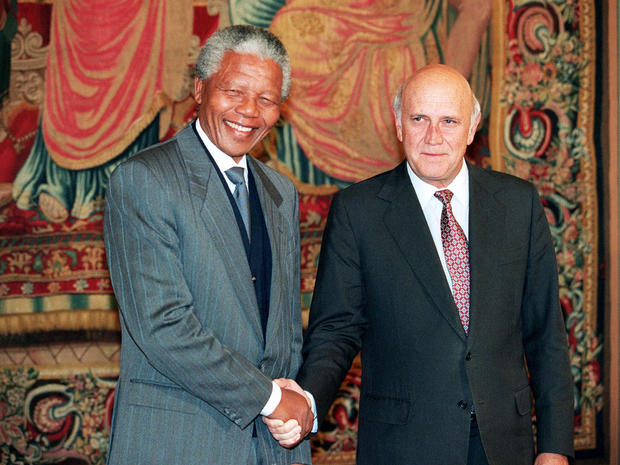Maya Angelou: Mandela taught mankind the power of forgiveness
Author and poet Maya Angelou remembered former South African President Nelson Mandela, who died Thursday, as the man who taught people “how liberating it is to forgive.”
That lesson, she said, was critical to the future of the African nation when Mandela was released from prison after serving 27 years and sought unification for the country rather than revenge on the people who had put him in jail.
She told host Bob Schieffer that Mandela’s kindness is the
quality she would like the world to remember.
“I think you can’t really forgive unless you are really kind. And so you forgive a person or persons or systems, you forgive them and then you don’t have to drag them around with you every day, and all day and all night long,” she said. “It is a gift to yourself to forgive and I would say that Nelson Mandela’s gift to the world was his ability to forgive.”
“I wish we had a few Nelson Mandela’s in America, or maybe a few more in the world, to point us to the best part of our human spirit,” he said.
“We were trying to accomplish several things. One, we were trying to build an environment, an atmosphere in which to remove the underpinning that the United States had been providing to South Africa in investments and loans, computer technology, in military assistance of one kind or another. We were the legs on which apartheid stood together with other industrialized western nations so we thought our role was to remove that underpinning,” he said.
“Nelson Mandela ushered in a dramatically different kind of South Africa. And we thought it was our responsibility to play a small part in that struggle because our country was a major part of the black community’s problem in South Africa. We were on the wrong side of the issue and the wrong side of history,” Robinson said.
He recalled specifically President Ronald Reagan’s role in supporting the white South African government and opposing sanctions or penalties against the country until Congress forced the issue by passing a trade sanctions bill and then overriding Reagan’s veto.
Baker
met Mandela in Namibia just three weeks after his release from prison.
“I was
really amazed at the soft spokenness of this man, at the conviction of this
man, at the dignity of this man,” Baker said. “He had an enduring and endearing
presence of dignity that I don’t think I’ve ever seen on any other person. And
I just have always felt that this was an extraordinarily beautiful human being
who became, of course, an icon of freedom, of human rights, and of
reconciliation.”
